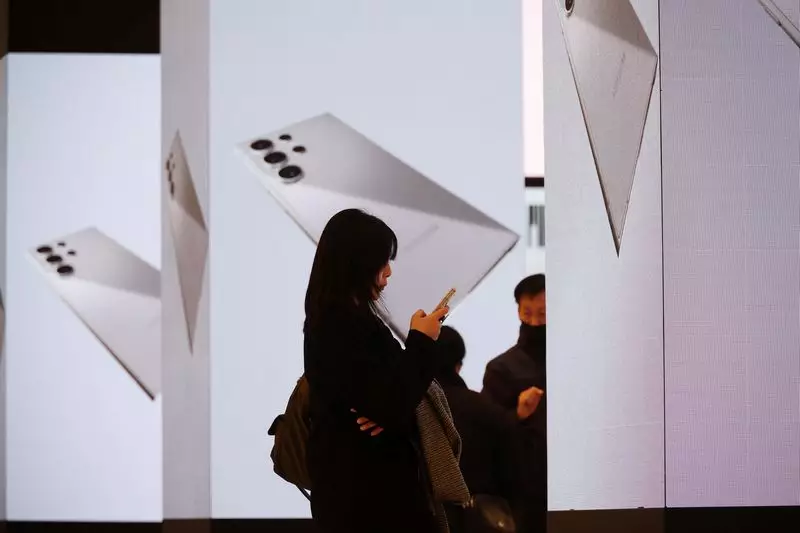Samsung Electronics has reported a noticeable increase in its operating profit for the third quarter compared to the same period last year. The company posted an operating profit of 9.2 trillion won (approximately $6.66 billion), a significant rise from 2.4 trillion won in the previous year, yet it marked a decline from the 10.4 trillion won achieved in the prior quarter. This mixed outcome points to a complex recovery path for the tech giant, impacted by broader market dynamics within the semiconductor industry.
Despite the promising figures, Samsung’s growth trajectory has slowed, primarily due to challenges faced in its semiconductor division. The company has indicated that it anticipates modest earnings growth in the current quarter, as rising profits in the memory chip sector are likely to be counterbalanced by underperformance in its “set” business segment, which includes smartphones and consumer electronics like TVs. While the specifics of this segment’s struggles are not divulged, the implication is clear: increased competition and potential saturation in consumer demand are affecting sales.
The semiconductor landscape is undergoing significant shifts, propelled by the rapid advancements in artificial intelligence. This sector has emerged as a vital contributor to the overall market, yet Samsung finds itself at a distal position in capitalizing on this AI boom, particularly in contrast to competitors such as TSMC and SK Hynix. These firms have leveraged growth opportunities from AI-related chip sales, particularly to major players like Nvidia, by swiftly adapting their production capabilities.
Samsung’s recent underperformance can be attributed, in part, to “delays” in sales to major clients, particularly in light of the higher supply of traditional chips from Chinese manufacturers, illustrating a growing risk in their market strategy. The necessity for high-end semiconductors for AI applications presents both an opportunity and a challenge for Samsung, as the firm struggles to meet these specialized demands.
As Samsung navigates these headwinds, the leadership has issued a cautious outlook for the upcoming months. The company’s reliance on a diverse range of electronics, from high-end semiconductors to consumer appliances, requires a balanced approach to mitigate risks associated with fluctuations in demand. The evolving technology landscape, especially with AI becoming a focal point, necessitates that Samsung reassess its strategies to enhance competitiveness and secure its position as a leader in the memory chip sector.
While Samsung Electronics showcases solid profits relative to last year, the declining quarter-on-quarter figures alongside emerging challenges signal a need for strategic reevaluation. The AI revolution presents a lucrative avenue for growth; however, Samsung’s current trajectory indicates potential vulnerabilities that must be addressed to reclaim momentum. Thus, emulating the agility demonstrated by rival firms could be essential for Samsung as it endeavors to maintain its stature amid evolving market conditions.

